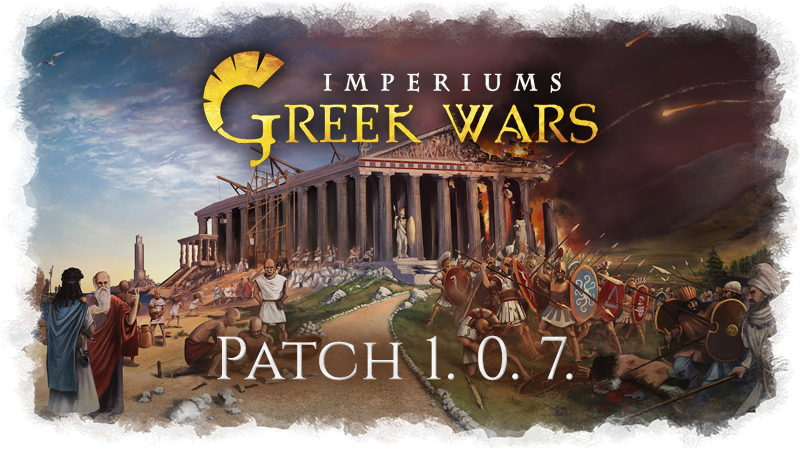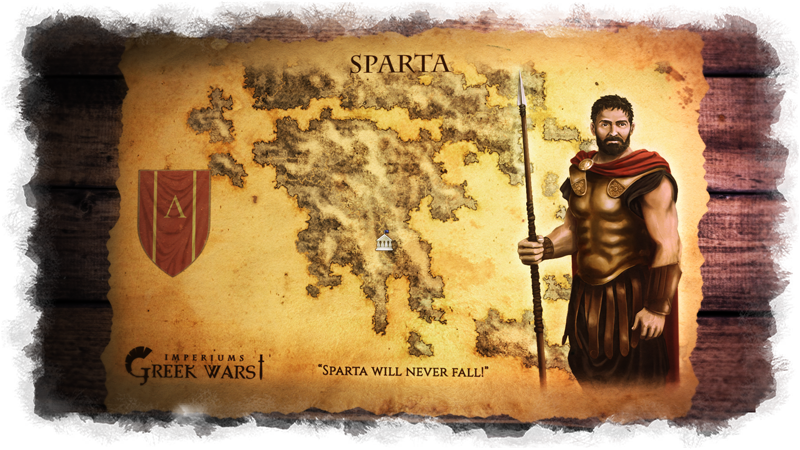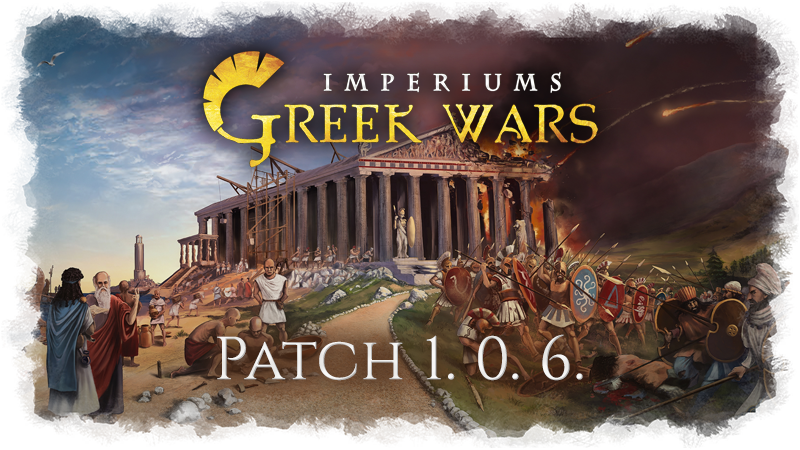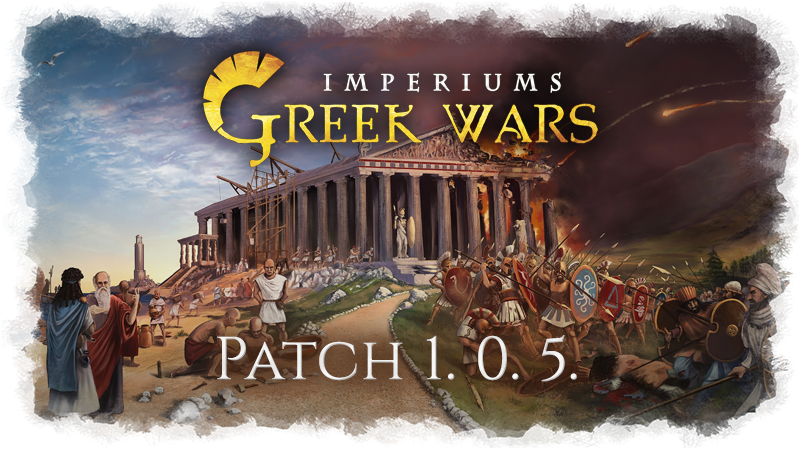Building an empire is not only a matter of powerful armies and conquest. Prosperity and stability stand on the ability to produce sufficient resources to cover the needs of a growing empire.
Management of resource production and their usage rates is of paramount importance to you. This is not all only about sufficient mine production, there are many modifiers that may curb production levels.
Slaves are indispensable to the state economy. Ancient states were often dependent on their slave workforce. A balance is required as too few slaves will negatively affect production, whereas too many can increase tensions in society and bring unhappiness.
Every society and system of government has its own attitude and requirement regarding slaves. This is reflected in the ratio between slaves and citizens, there is an ideal ratio to aim for with each government type.

There are a few slave markets that exist on the campaign map and the states that control them have a
great advantage over other players. There is the potential to create new slave markets once the appropriate technology has been obtained. However until that time you will likely be dependent on trading other valuable resources to obtain slaves.
Another option for obtaining slaves is through conquest; you are able to enslave some of the local population of defeated cities. However, this has its setbacks as it reduces the loyalty and happiness in the region still further. You can hardly win trust wielding a whip.
Territories are another important modifier in calculating resource production. Full or majority ownership of a territory maximizes the resource production of all map items within this territory (mines and tiles alike), whereas owning only small portion of a territory reduces production. This should be an element in your calculations when conquering foreign lands; complete territories are more valuable than partial conquests. The bonus or penalty for territories if further affected by selected game difficulty.
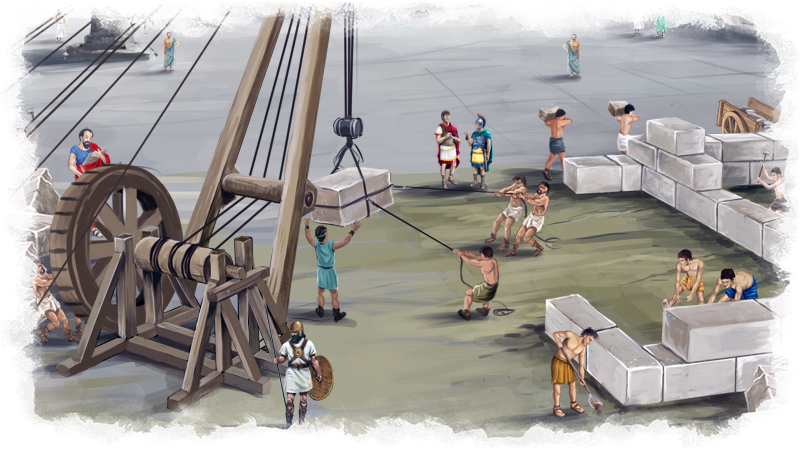 Infrastructure
Infrastructure and improvements also factor in to resource production; aim for better roads and upgraded blacksmiths to increase production.
Trade is extremely important for maintaining a stable economy. It also has the added bonus of forging closer relationships with other states as long standing trade deals cement partnerships. An occasional gift will only strengthen these bonds.
To build national development and military strength you are reliant on a steady increase in the
size of your cities populations. Empty lands are of no use to your empire; without a thriving population fields will not be sown and reaped, new cities will not be built, resource production and trading will be limited.
Above all, you need a thriving population to fill the ranks of your state’s administration, advisors and of
course the military.
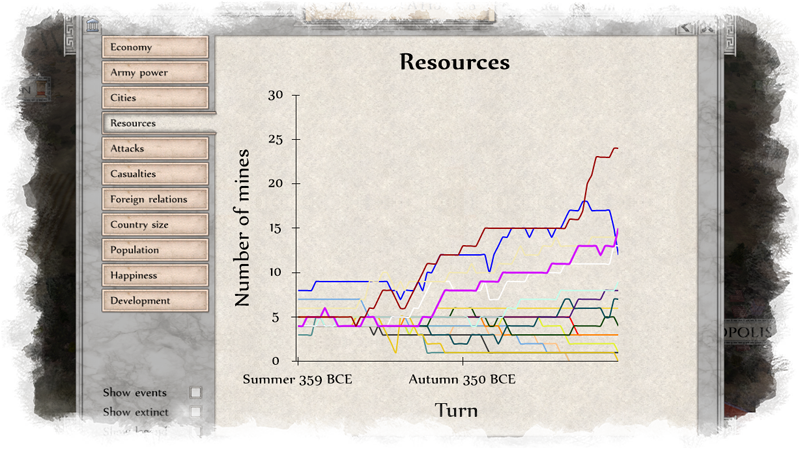
However, population growth also has a price; people need resources to sustain themselves. Bigger populations need more food and raw materials which naturally increase the costs to the state. A balance has to be maintained between the size of the population and your ability to support them with your resource reserves. New recruits and workers are of no use if they can’t be fed. One option you have for regulating the increase or decrease in population size, are the birth rate support grants. Levels can be adjusted for the whole state or for individual cities.
The
type of government also affects the efficiency with which resources are mined, distributed and used. Some forms of government administration are particularly good at managing their resources; one example is small city-states whose administrations are based on collaboration.
Corruption is another critical aspect of your economy. The effective management of larger states will be compromised as power is delegated to lower levels; the further from the seat of power, the more likely that local civil servants will use their positions to enrich themselves. The different government types in the game can have an enhancing or suppressing effect on corruption. City-states are prone to corruption because they are self centered whereas empires often have a firm and stable hierarchy to keep corruption minimized.
Managing the economy of the whole state is not an easy task. We have reduced micromanagement, but the important decisions still have to be made by you and these will keep your hands full.
Prosperity can be achieved, but the path to it, is not an easy one.
